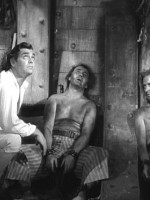Marvin Hamlisch est un Acteur et Son Américain né le 2 juin 1944 à New York (Etats-Unis)

Marvin Frederick Hamlisch (June 2, 1944 – August 6, 2012) was an American composer and conductor. He is one of only eleven EGOTs – winners of an Emmy, Grammy, Oscar, and Tony. He is one of ten people to win three or more Oscars in one night and the only non-director/screenwriter to do so. He is one of only two people to have won those four prizes and a Pulitzer Prize (Richard Rodgers is the other). Hamlisch also won two Golden Globes.
Hamlisch was born in Manhattan, to Viennese-born Jewish parents, Lilly (née Schachter) and Max Hamlisch. His father was an accordionist and bandleader. Hamlisch was a child prodigy, and, by age five, he began mimicking the piano music he heard on the radio. A few months before he turned seven, in 1951, he was accepted into what is now the Juilliard School Pre-College Division.
His first job was as a rehearsal pianist for Funny Girl with Barbra Streisand. Shortly afterward, he was hired by producer Sam Spiegel to play piano at Spiegel's parties. This connection led to his first film score, The Swimmer. His favorite musicals growing up were My Fair Lady, Gypsy, West Side Story, and Bye Bye Birdie. Hamlisch attended Queens College, earning his Bachelor of Arts degree in 1967.
Music for Films
Although Liza Minnelli's debut album included a song he wrote in his teens, his first hit did not come until he was 21 years old. This song, "Sunshine, Lollipops, and Rainbows", co-written with Howard Liebling, was recorded by Lesley Gore and reached #13 on the Billboard Hot 100 in the summer of 1965. His first film score was for The Swimmer, after the film's producer Sam Spiegel hired Hamlisch based on a piano performance Hamlisch did at a party. Later he wrote music for several early Woody Allen films such as Take the Money and Run and Bananas. In addition, Hamlisch co-wrote the song "California Nights" (also with Liebling), which was recorded by Lesley Gore for her 1967 hit album of the same name. The Bob Crewe-produced single peaked at #16 on the Hot 100 in March 1967, two months after Gore had performed the song on the Batman TV series, in which she guest-starred as an accomplice to Julie Newmar's Catwoman.
Among his better-known works during the 1970s were adaptations of Scott Joplin's ragtime music for the motion picture The Sting, including its theme song, "The Entertainer". It hit #1 on Billboards Adult Contemporary chart and #3 on the Hot 100, selling nearly 2 million copies in the U.S. alone. He had great success in 1973, winning two Academy Awards for the title song and the score for the motion picture The Way We Were and an Academy Award for the adaptation score for The Sting. He won four Grammy Awards in 1974, two for "The Way We Were". In 1975, he wrote what, for its first 12 years, would be the original theme music for Good Morning America---it was built around four notes. He co-wrote "Nobody Does It Better" for The Spy Who Loved Me (1977) with his then-girlfriend Carole Bayer Sager, which would be nominated for an Oscar. In the 1980s, he had success with the scores for Ordinary People (1980) and Sophie's Choice (1982). He also received an Academy-Award nomination in 1986 for the film version of A Chorus Line. His last projects included The Informant! (2009), starring Matt Damon and directed by Steven Soderbergh. Prior to his death, he completed the score for the HBO movie Behind the Candelabra (2013), also directed by Soderbergh and starring Damon and Michael Douglas as Liberace.
Stage
Hamlisch's first major stage work was in 1972 playing piano for Groucho Marx at Carnegie Hall for An Evening with Groucho. Hamlisch acted as both straight man and accompanist while Marx (at age 81) reminisced about his career in show business. The performances were released as a 2-record set, and remained very popular. He then composed the score for the 1975 Broadway musical A Chorus Line, for which he won both a Tony Award and a Pulitzer Prize; and They're Playing Our Song, loosely based on his relationship with Carole Bayer Sager.
At the beginning of the 1980s, his romantic relationship with Bayer Sager ended, but their songwriting relationship continued. The 1983 musical Jean Seberg, based on the life of the real-life actress, failed in its London production at the UK's National Theatre and never played in the U.S. In 1986, Smile was a mixed success and had a short run on Broadway. The musical version of Neil Simon's The Goodbye Girl (1993) closed after only 188 performances, although he received a Drama Desk nomination, for Outstanding Music.
Shortly before his death, Hamlisch finished scoring a musical theatre version of The Nutty Professor, based on the 1963 film. The show played in July and August 2012, at the Tennessee Performing Arts Center (TPAC) in Nashville, aiming for a Broadway run. The book is by Rupert Holmes, and the production was directed by Jerry Lewis.
Conductor
Hamlisch was Musical Director and arranger of Barbra Streisand's 1994 concert tour of the U.S. and England as well as of the television special, Barbra Streisand: The Concert, for which he received two of his Emmys. He also conducted several tours of Linda Ronstadt during this period, most notably on her successful 1996 Dedicated to the One I Love tour of arenas and stadiums.
He held the position of Principal Pops Conductor for the Pittsburgh Symphony Orchestra, the Milwaukee Symphony Orchestra, the San Diego Symphony, the Seattle Symphony, the Dallas Symphony Orchestra, Buffalo Philharmonic Orchestra, The National Symphony Orchestra Pops, The Pasadena Symphony and Pops, and the Baltimore Symphony Orchestra. At the time of his death, he was preparing to assume responsibilities as Principal Pops Conductor for The Philadelphia Orchestra.
 (1987)
(1987)
(Compositeur de musique originale) (1977)
(1977)
(Compositeur de musique originale) (1973)
(1973)
(Compositeur de musique originale)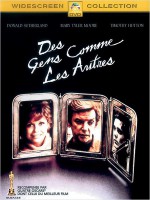 (1980)
(1980)
(Compositeur de musique originale) (1973)
(1973)
(Chargé de chansons)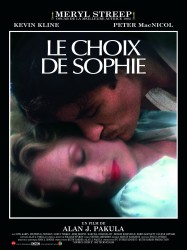 (1982)
(1982)
(Compositeur de musique originale)
Source : Wikidata
Marvin Hamlisch

- Infos
- Photos
- Meilleurs films
- Famille
- Personnages
- Récompenses
Nom de naissance Marvin Frederick Hamlisch
Nationalité Etats-Unis
Naissance 2 juin 1944 à New York (Etats-Unis)
Mort 6 aout 2012 (à 68 ans) à Los Angeles (Etats-Unis)
Récompenses Emmy Award, Pulitzer Prize for Drama
Nationalité Etats-Unis
Naissance 2 juin 1944 à New York (Etats-Unis)
Mort 6 aout 2012 (à 68 ans) à Los Angeles (Etats-Unis)
Récompenses Emmy Award, Pulitzer Prize for Drama
Biographie
Early lifeHamlisch was born in Manhattan, to Viennese-born Jewish parents, Lilly (née Schachter) and Max Hamlisch. His father was an accordionist and bandleader. Hamlisch was a child prodigy, and, by age five, he began mimicking the piano music he heard on the radio. A few months before he turned seven, in 1951, he was accepted into what is now the Juilliard School Pre-College Division.
His first job was as a rehearsal pianist for Funny Girl with Barbra Streisand. Shortly afterward, he was hired by producer Sam Spiegel to play piano at Spiegel's parties. This connection led to his first film score, The Swimmer. His favorite musicals growing up were My Fair Lady, Gypsy, West Side Story, and Bye Bye Birdie. Hamlisch attended Queens College, earning his Bachelor of Arts degree in 1967.
Music for Films
Although Liza Minnelli's debut album included a song he wrote in his teens, his first hit did not come until he was 21 years old. This song, "Sunshine, Lollipops, and Rainbows", co-written with Howard Liebling, was recorded by Lesley Gore and reached #13 on the Billboard Hot 100 in the summer of 1965. His first film score was for The Swimmer, after the film's producer Sam Spiegel hired Hamlisch based on a piano performance Hamlisch did at a party. Later he wrote music for several early Woody Allen films such as Take the Money and Run and Bananas. In addition, Hamlisch co-wrote the song "California Nights" (also with Liebling), which was recorded by Lesley Gore for her 1967 hit album of the same name. The Bob Crewe-produced single peaked at #16 on the Hot 100 in March 1967, two months after Gore had performed the song on the Batman TV series, in which she guest-starred as an accomplice to Julie Newmar's Catwoman.
Among his better-known works during the 1970s were adaptations of Scott Joplin's ragtime music for the motion picture The Sting, including its theme song, "The Entertainer". It hit #1 on Billboards Adult Contemporary chart and #3 on the Hot 100, selling nearly 2 million copies in the U.S. alone. He had great success in 1973, winning two Academy Awards for the title song and the score for the motion picture The Way We Were and an Academy Award for the adaptation score for The Sting. He won four Grammy Awards in 1974, two for "The Way We Were". In 1975, he wrote what, for its first 12 years, would be the original theme music for Good Morning America---it was built around four notes. He co-wrote "Nobody Does It Better" for The Spy Who Loved Me (1977) with his then-girlfriend Carole Bayer Sager, which would be nominated for an Oscar. In the 1980s, he had success with the scores for Ordinary People (1980) and Sophie's Choice (1982). He also received an Academy-Award nomination in 1986 for the film version of A Chorus Line. His last projects included The Informant! (2009), starring Matt Damon and directed by Steven Soderbergh. Prior to his death, he completed the score for the HBO movie Behind the Candelabra (2013), also directed by Soderbergh and starring Damon and Michael Douglas as Liberace.
Stage
Hamlisch's first major stage work was in 1972 playing piano for Groucho Marx at Carnegie Hall for An Evening with Groucho. Hamlisch acted as both straight man and accompanist while Marx (at age 81) reminisced about his career in show business. The performances were released as a 2-record set, and remained very popular. He then composed the score for the 1975 Broadway musical A Chorus Line, for which he won both a Tony Award and a Pulitzer Prize; and They're Playing Our Song, loosely based on his relationship with Carole Bayer Sager.
At the beginning of the 1980s, his romantic relationship with Bayer Sager ended, but their songwriting relationship continued. The 1983 musical Jean Seberg, based on the life of the real-life actress, failed in its London production at the UK's National Theatre and never played in the U.S. In 1986, Smile was a mixed success and had a short run on Broadway. The musical version of Neil Simon's The Goodbye Girl (1993) closed after only 188 performances, although he received a Drama Desk nomination, for Outstanding Music.
Shortly before his death, Hamlisch finished scoring a musical theatre version of The Nutty Professor, based on the 1963 film. The show played in July and August 2012, at the Tennessee Performing Arts Center (TPAC) in Nashville, aiming for a Broadway run. The book is by Rupert Holmes, and the production was directed by Jerry Lewis.
Conductor
Hamlisch was Musical Director and arranger of Barbra Streisand's 1994 concert tour of the U.S. and England as well as of the television special, Barbra Streisand: The Concert, for which he received two of his Emmys. He also conducted several tours of Linda Ronstadt during this period, most notably on her successful 1996 Dedicated to the One I Love tour of arenas and stadiums.
He held the position of Principal Pops Conductor for the Pittsburgh Symphony Orchestra, the Milwaukee Symphony Orchestra, the San Diego Symphony, the Seattle Symphony, the Dallas Symphony Orchestra, Buffalo Philharmonic Orchestra, The National Symphony Orchestra Pops, The Pasadena Symphony and Pops, and the Baltimore Symphony Orchestra. At the time of his death, he was preparing to assume responsibilities as Principal Pops Conductor for The Philadelphia Orchestra.
Ses meilleurs films
 (1987)
(1987)(Compositeur de musique originale)
 (1977)
(1977)(Compositeur de musique originale)
 (1973)
(1973)(Compositeur de musique originale)
 (1980)
(1980)(Compositeur de musique originale)
 (1973)
(1973)(Chargé de chansons)
 (1982)
(1982)(Compositeur de musique originale)
Le plus souvent avec
Filmographie de Marvin Hamlisch (50 films)
Acteur

Every Little Step (2009)
, 1h36Réalisé par James D. Stern
Origine Etats-Unis
Genres Drame, Documentaire, Musical
Thèmes Danse, La musique, Documentaire sur la musique, Documentaire sur une personnalité, Documentaire sur les villes, Musique
Acteurs Marvin Hamlisch, Jason Tam, Baayork Lee
Note76%





Le film retrace le casting et la production de la comédie musicale Chorus Line à Broadway (759 représentations entre 2006 et 2009).
 , 1h56
, 1h56Réalisé par Donald Petrie
Origine Etats-Unis
Genres Comédie, Comédie romantique, Romance
Thèmes Film sur un écrivain, Journalisme
Acteurs Kate Hudson, Matthew McConaughey, Adam Goldberg, Bebe Neuwirth, Kathryn Hahn, Annie Parisse
Rôle lui-même
Note65%





New York. Andie Anderson, jeune et séduisante journaliste travaillant pour un magazine de mode en vogue, Composure, écrit une rubrique à succès sur les solutions à adopter dans des situations (éviter un PV, installer les meubles...), mais elle s'ennuie et souhaite écrire des articles importants centrés sur la politique, la pauvreté, l'économie et la religion.

Nos plus belles années (1973)
, 1h58Réalisé par Sydney Pollack
Origine Etats-Unis
Genres Drame, Musical, Romance
Thèmes Religion
Acteurs Barbra Streisand, Robert Redford, Bradford Dillman, Lois Chiles, Patrick O'Neal, Viveca Lindfors
Rôle Guest
Note69%





Aux États-Unis, entre 1937 et 1950. Katie et Hubbell se sont rencontrés à l'université. Lui était un étudiant et play-boy désinvolte, elle, une ardente militante communiste.

La Vallée des poupées (1968)
, 2h3Réalisé par Mark Robson
Origine Etats-Unis
Genres Drame, Comédie musicale, Musical, Romance
Thèmes La télévision, Films pour enfants
Acteurs Barbara Parkins, Sharon Tate, Patty Duke, Susan Hayward, Lee Grant, Tony Scotti
Rôle Pianist (uncredited)
Note60%





Anne Welles (Barbara Perkins) quitte sa famille et son fiancé dans une petite ville de Nouvelle-Angleterre pour découvrir New York. Elle y devient secrétaire d'un avocat spécialisé dans le théâtre. Elle fait la connaissance de deux autres jeunes femmes qui prévoient de faire carrière dans le monde du spectacle : l'ambitieuse et prometteuse Neely O'Hara (Patty Duke) et la très belle mais peu talentueuse Jennifer North (Sharon Tate). Neely commence sa carrière de manière fulgurante mais ne tarde pas à se laisser prescrire trop de médicaments (pour dormir, pour être éveillée...). Son addiction ruinera ses deux mariages mais aussi sa vie professionnelle. Après une cure, elle tente un retour à Broadway mais l'alcool et les drogues seront les plus fortes. Jennifer se marie avec Tony, un chanteur qui veut devenir acteur et qui s'avère atteint d'une maladie dégénérative, forçant sa jeune épouse à trouver un moyen de payer pour ses soins. Partie tourner des films sensuels en Europe, elle met fin à ses jours lorsqu'elle doit subir une mastectomie qui la prive du seul bien qu'elle pense posséder, son corps. Enfin, Anne devient mannequin par hasard et vit des histoires d'amour décevantes qui la conduiront à retourner vivre dans sa ville natale.
Son

Ma vie avec Liberace (2013)
, 1h58Réalisé par Steven Soderbergh
Origine Etats-Unis
Genres Drame, Biographie, Romance
Thèmes La musique, Sexualité, Homosexualité, LGBT, LGBT
Acteurs Michael Douglas, Matt Damon, Dan Aykroyd, Rob Lowe, Debbie Reynolds, Scott Bakula
Rôle Compositeur de musique originale
Note69%





Durant l'été 1977, le jeune Scott Thorson, dresseur de chiens, entre dans la loge du célèbre pianiste Liberace... Malgré leur différence d'âge et leurs origines sociales opposées, les deux hommes entament une liaison secrète. Cette relation, souvent orageuse, va durer cinq ans.

The informant! (2009)
, 1h48Réalisé par Steven Soderbergh
Origine Etats-Unis
Genres Drame, Thriller, Comédie, Comédie dramatique, Policier
Thèmes Maladie, Folie
Acteurs Scott Bakula, Matt Damon, Joel McHale, Eddie Jemison, Melanie Lynskey, Tom Papa
Rôle Compositeur de musique originale
Note64%





En 1992 à Decatur, Mark Whitacre, président de la division BioProducts au sein de la grande société agroalimentaire, Archer Daniels Midland, découvre des malversations financières au sein de son entreprise. Il va alors se « confesser » à un agent du FBI, notamment à propos d'une entente sur les prix de la lysine. Mark va alors devenir une « taupe », tout en tentant de protéger certains de ses propres intérêts.

Lueur d'amour (2006)
, 2hRéalisé par John Erman
Origine Etats-Unis
Genres Drame
Acteurs Alicia Silverstone, Eion Bailey, Annabeth Gish, Matthew Knight, Polly Bergen, James Rebhorn
Note64%





Dee Dee, veuve et atteinte d'une maladie incurable, retourne dans sa ville natale avec son fils. Elle y retrouve Sam, son ami d'enfance, désormais vétérinaire et marié. Ces retrouvailles vont rallumer un amour que tous deux croyaient éteint...
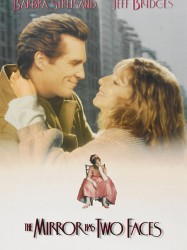
Leçons de séduction (1996)
, 2h6Réalisé par Barbra Streisand
Origine Etats-Unis
Genres Drame, Comédie, Comédie dramatique, Romance
Acteurs Jeff Bridges, Lauren Bacall, George Segal, Mimi Rogers, Pierce Brosnan, Brenda Vaccaro
Rôle Compositeur de musique originale
Note66%





Gregory Larkin, professeur de mathématiques, lassé du sexe, décide de vivre une grande passion platonique et se met en quête de l'âme sœur. Il trouve Rose, qui lui convient tout à fait et ils se marient, à l'étonnement général. Rose malgré tout a du mal à réprimer l'attirance qu'elle sent monter en elle pour son mari, et elle va devoir déployer des trésors d'imagination pour trouver sa vraie place.

Seasons of the Heart (1993)
, 1h39Origine Etats-Unis
Genres Drame
Thèmes Religion
Acteurs Sam Hennings, Claude Akins, Yvonne De Carlo
Note63%





Martha and Jed Richards live in Oregon in 1862. They and their two daughters moved there to make a new life, but the daughters died of cholera along the way. This has left Martha an emotional wreck, and she is unable to move on with her life. That is until an orphan named Danny comes to live with them. Jed immediately accepts Danny as his son, but Martha is still too upset to be able to love him. As time passes, however, she finds herself more and more able to accept him as part of the family.

Missing Pieces (1992)
, 1h27Réalisé par Leonard B. Stern
Origine Royaume-uni
Genres Thriller, Comédie
Acteurs Eric Idle, Robert Wuhl, Lauren Hutton, Janice Lynde, Bob Gunton, James Hong
Rôle Compositeur de musique originale
Note52%





Eric Idle and Robert Wuhl star as a mismatched couple, Wendel and Lou in this mystery-comedy caper. Characters include a one-handed kingpin,a lawyer who suffers from dwarfism, and twin brothers, one a crazed photographer and the other a mild-mannered antique dealer. One of Wendel's many former foster parents, Mr Hu, dies, and his lawyer (the dwarf) gives Wendel his inheritance. A riddle. Wendel and Lou (his cello-playing best friend) soon realise the riddle isn't Hu's heirloom, just the key to finding Wendel's inheritance. But they are pursued by several unfavourable characters, almost all of whom want them dead.

Frankie et Johnny (1991)
, 1h58Réalisé par Garry Marshall
Origine Etats-Unis
Genres Drame, Comédie, Comédie dramatique, Comédie romantique, Romance
Thèmes Théâtre, Adaptation d'une pièce de théâtre
Acteurs Al Pacino, Michelle Pfeiffer, Héctor Elizondo, Nathan Lane, Kate Nelligan, Harvey Miller
Rôle Compositeur de musique originale
Note67%





Après avoir passé 18 mois en prison pour contrefaçon, pendant lesquels il s'est découvert un goût pour la cuisine et la littérature, Johnny est engagé comme cuisinier dans un restaurant de New York. Il y rencontre Frankie, une serveuse de nature solitaire et commence à éprouver de l'intérêt pour elle. Mais celle-ci a eu de très mauvaises expériences avec les hommes et se méfie d'eux.
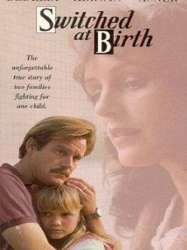
Confusion tragique (1991)
, 3h6Réalisé par Waris Hussein
Origine Etats-Unis
Genres Drame
Acteurs Bonnie Bedelia, Brian Kerwin, John M. Jackson, Ariana Richards, Eve Gordon, Alyson Hannigan
Note67%





Quelques heures après leur naissance, deux petites filles sont échangées par mégarde dans une maternité. L'une d'elles est atteinte d'une grave malformation cardiaque…

Les Experts (1989)
, 1h34Réalisé par Dave Thomas
Origine Etats-Unis
Genres Comédie, Action
Thèmes Politique
Acteurs John Travolta, Arye Gross, Kelly Preston, James Keach, Deborah Foreman, Jan Rubes
Rôle Compositeur de musique originale
Note49%





En plein cœur de l'Union Soviétique, se trouve un village peuplé par des autochtones qui non seulement parlent anglais, mais qui ont adopté en plus le mode de vie américain. C'est dans cet endroit 'stratégique' que le KGB envoie ses agents apprendre le mode de vie 'occidental'. Cameron Smith, l'un des responsables de cette ville artificielle, se rend incognito à New York, où il rencontre deux jeunes hommes branchés, auxquels il demande de se rendre dans le Nebraska, afin d'ouvrir un night-club. Du moins, c'est ce qu'il leur fait croire car en réalité Smith les drogue.

Calendrier meurtrier (1989)
, 1h37Réalisé par Pat O'Connor
Origine Etats-Unis
Genres Thriller, Comédie, Action, Policier
Thèmes Tueur en série
Acteurs Kevin Kline, Susan Sarandon, Mary Elizabeth Mastrantonio, Harvey Keitel, Danny Aiello, Rod Steiger
Rôle Compositeur de musique originale
Note54%





Un ex-policier au tempérament excentrique, reprend du service pour tenter de mettre fin à une série de 11 meurtres commis par un tueur psychopathe.

Shirley Valentine (1989)
, 1h48Réalisé par Lewis Gilbert
Origine Royaume-uni
Genres Drame, Comédie, Comédie dramatique, Romance
Thèmes Théâtre, Adaptation d'une pièce de théâtre
Acteurs Pauline Collins, Tom Conti, Alison Steadman, Julia McKenzie, Joanna Lumley, George Costigan
Rôle Chargé de chansons
Note71%





Shirley Valentine est une femme au foyer de quarante ans en plein questionnement et en pleine rétrospective sur sa vie, ses rêves, ses enfants, son couple. Prise dans la routine infernale de la vie dans une triste banlieue de Liverpool, prisonnière des journées monotones et sans surprises, elle analyse la situation en parlant aux murs de sa cuisine. Une amie de Shirley lui propose un voyage en Grèce gagné dans un concours. Après bien des hésitations elle se décide et s'envole pour une ile grecque en compagnie de son amie et d'un épouvantable groupe de touristes. Petit à petit Shirley reprend confiance en elle et goûte enfin à cette liberté abandonnée depuis tant d'années. Shirley lors de ce séjour se détache complètement de son amie et du groupe de touristes pour découvrir les charmes de la Grèce en compagnie des habitants de l'île. Au moment du retour sur Londres elle fait demi-tour en plein aéroport et décide finalement de rester en Grèce.
 Connexion
Connexion




